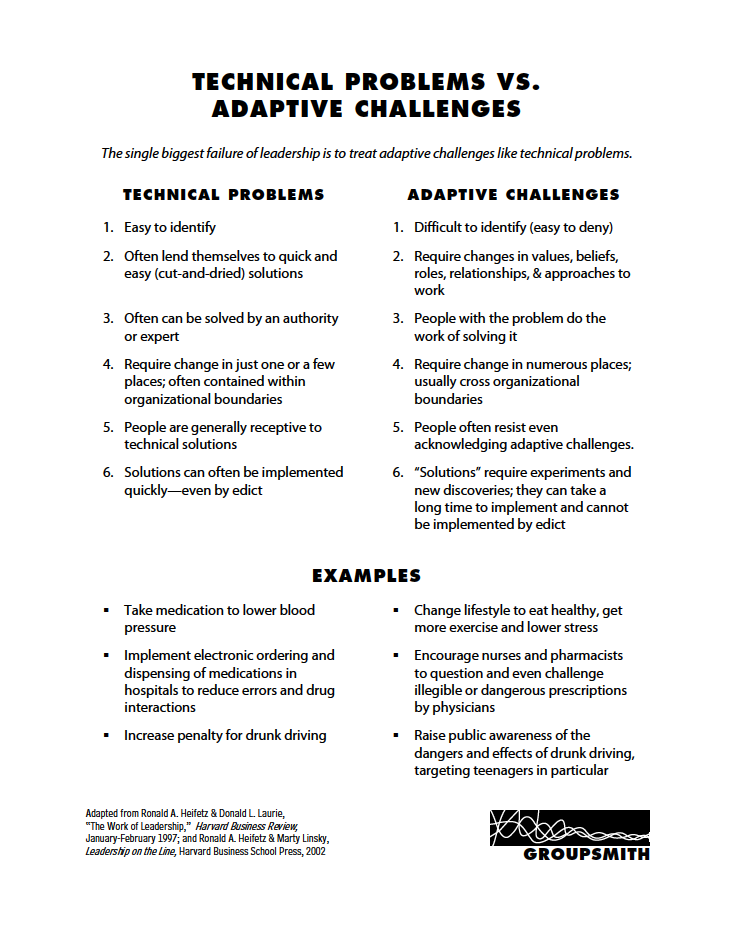Technical Problems or Adaptive Challenges?
by Becky Lemon, 2/27/19

We work in an industry that often needs us to do things quickly. A reasonable sense of urgency is expected from everyone, and efficiencies are built into every aspect of preparing for and executing service. It’s no surprise then that when a problem comes up, we look to the people with the most expertise to help us fix it as soon as possible. That can be a useful strategy, but if it’s the only one employed, we miss out on a few things, including the opportunity to recognize and address the bigger issues that may be hidden underneath. We also don’t get the chance to let the greater team build and exercise their own problem-solving muscle, which is crucial for a culture like ours that values empowerment and development.
The question this brings up for leadership is, in the simplest sense, “when we recognize a problem, do we treat the symptom or do we address and take on the cause?”
Authors Ronald Heifetz and Donald L. Laurie wrote a fantastic article about this concept for Harvard Business Review back in December of 2001 called The Work of Leadership. They framed it by defining the differences of “technical problems vs. adaptive challenges,” and focusing on the strategies, struggles, and benefits of steering a leader’s default away from being the expert who doles out solutions (the technical fixer) to being the facilitator of a process that requires people at all levels of power to change their instincts, behaviors, systems, and even values to address what is really getting in their way of success (the adaptive leader).
“…in order to make change happen, executives have to break a longstanding behavior pattern of their own: providing leadership in the form of solutions. This tendency is quite natural because many executives reach their positions of authority by virtue of their competence in taking responsibility and solving problems. But the locus of responsibility for problem solving when a company faces an adaptive challenge must shift to its people. Solutions to adaptive challenges reside not in the executive suite but in the collective intelligence of employees at all levels, who need to use one another as resources, often across boundaries, and learn their way to those solutions.”
A deep dive on their theories is worthwhile, I first dipped my toes into it with this simple, concise summary of technical problems and adaptive challenges and found that it alone opened up a new way of looking at my world and how I respond to problems and change, personally and professionally. So, I’ll leave it at that. Check it out, then look up and around at your current landscape, see what is popping up as technical problems/technical fixes or adaptive challenges/adaptive solutions and note how you feel about it all. There is no right or wrong to what you find, there is awareness, understanding, choice, and trying/failing/learning. Curious to hear what this opens up for you!


Hi Becky, great insights! I think you are right, the restaurant industry is built on solving problems and making a habit, even a culture out of quick solutions. What a challenge it is to slow down!
>
LikeLike